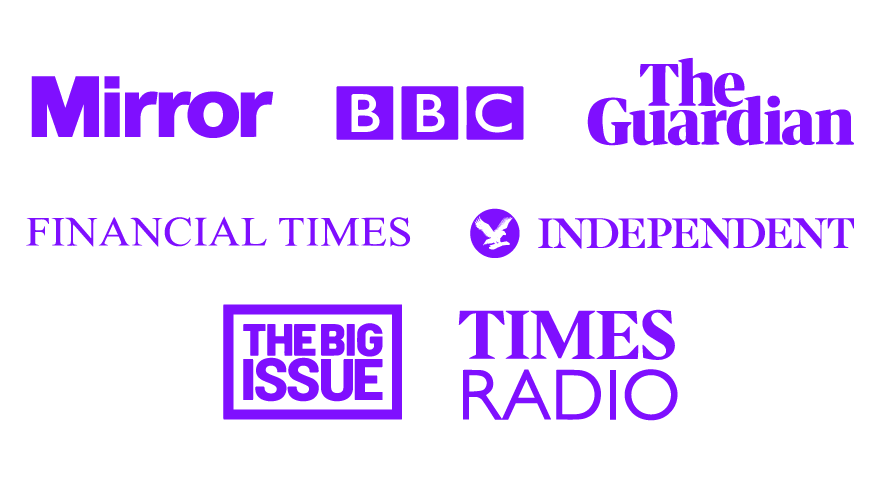Re-posting from Social Policy Association blog
There are always ethical issues that researchers must be mindful of when carrying out research on poverty and social security. Power dynamics, the sensitivity required when asking people about their experiences, and importance of offering opportunities for people on a low income to genuinely shape and engage in research design and process, are just a few of the concerns that must be carefully thought through. These questions become even more critical when carrying out research in the context of COVID-19. This unprecedented context places new pressures on us all; creating a climate where we are all having to make radical, and often very difficult, changes to our everyday lives. This context has also created a new need for research, while also leading to criticisms in some quarters about what is sometimes seen as a rush to research, potentially leading to duplications in research efforts as well as additional (and sometimes unnecessary) pressures and demands being made of participants.
A new project, funded by Nuffield Foundation, is exploring how families in poverty with dependent children navigate the pandemic, while also tracking how the social security system responds. A key part of the project is a focus on how best to do this ethically and with sensitivity. As researchers, who are themselves trying to navigate their way through pre-existing and new projects with people living on a low income, we recognise these concerns will be shared by other researchers – and are conscious that a place to connect and share concerns could be helpful in navigating this new terrain.
Navigating ethical challenges together
The opportunity to talk through some of these challenges is now limited to Zoom or Skype calls, as we are unable to share concerns with colleagues over a coffee in the office. Having the chance to hear from colleagues who are also figuring out how to take their research forward – whether to adapt or postpone existing research plans, and whether to develop new projects – will be invaluable as we all think through our own research plans. We seek to create a space for honest discussions about what has or hasn’t worked well; a forum in which we can consider ethical debates and dilemmas together.
As part of efforts to create just such a space, this month we will all take part in a webinar to discuss key learnings and challenges around how we can conduct research on poverty ethically at a time of global crisis, bringing together perspectives from academia, charitable organisations and practitioner organisations. This webinar will consider some of the issues involved in setting up new projects, as well as in continuing and adapting fieldwork to the current context. A core concern here is not to overburden people at a time of uncertainty, when they may be experiencing both physical and mental ill health, worsened hardship, and could likely be grieving for lost loved ones. Evidence is suggesting that those on the lowest incomes are being impacted hardest by COVID-19, something that is reflected in geographical differences which replicate pre-existing health inequalities. The impact of COVID-19 is also disproportionately raced, gendered, and aged. Former UN Special Rapporteur in Extreme Poverty and Human Rights, Professor Philip Alston, recently commented that “the most vulnerable have been short-changed or excluded” by official responses to COVID-19. As researchers, how can we be mindful of the devastation COVID-19 is causing to low-income families and their local communities?
Developing an ‘ethical compass’
Following a two-year in-depth inquiry run by an international working group, the Nuffield Council on Bioethics’ report ‘Research in global health emergencies: ethical issues’ was published in January 2020, a matter of weeks before we began to see the impact of COVID-19 in the UK. The report – with prescient timeliness – offers an ‘ethical compass’ and valuable reflections for those of us who are now attempting to carry out research that is appropriate and sensitive to these new times. The ethical compass raises issues of disparities of power and influence, urging a consideration of how the voices of those who are most affected by emergencies can be meaningfully included in deciding what research takes place, where, and how.
It is very striking how issues raised by research participants in very different circumstances (for example, in the contributions of Ebola survivors’ leaders to the Nuffield Council’s inquiry) have resonated in recent weeks and months in the UK. These include the importance of researchers taking the experiences of affected populations as their starting point, and recognising that what may seem most important to (often remote) decision-makers may look very different from other perspectives. Just as Ebola survivors’ leaders pointed to the relevance, both for research and service provision, of realising that Ebola was just one of the many challenges (malaria, acute poverty, violence) facing people in affected countries, voices in the UK have highlighted how measures to curb COVID-19 infection have created or exacerbated many other, equally important needs, including limitations on access to healthcare for other conditions.
We are increasingly aware of the disproportionate effects of lockdown on many disadvantaged or marginalised groups, including low-income families. In the social research sector there have been some inspiring examples of how the voices of those with lived experience have been heard in research planning, including in prioritising mental health research needs, and in understanding the experiences of diverse families under lockdown – but much more needs to be done to build on this approach and then ensure that subsequent research findings feed into policy.
The report also highlights the importance, as well as the difficult position, of front-line research workers, and how they might be better supported in addressing the ethical dilemmas they face. Researchers working on the front line in third sector organisations are not only providing vital services to people on low income but are also playing a role in informing policy at a time of rapid change. Whilst many of the examples in the report arose in the context of low-income countries, here in the UK we are now facing a national crisis, and many of our third sector organisations are doing emergency relief work – making these findings especially relevant to the UK context.
There is no one ‘right’ way to carry out research on poverty and social security at any time and especially at a time of global crisis. And there no easy answers about whether what is required is more research with the aim of informing both immediate and future policy response, or, in some cases, a respectful silence. But, by creating opportunities and resources to help think through some of the key issues and tensions in a collaborative way, we hope the end result will be research practice that is sensitive to the new and fast shifting ethical context, and that can contribute to improving lives. Most importantly, we hope that in navigating these ethical challenges together, we can try to be responsive to key tensions and dilemmas to ensure social research is responsive to the hopes and viewpoints of people participating in research during a global pandemic.
Katharine Wright will be sharing findings from her report at the first of a bi-monthly webinar series on 11 June 2020: ‘Researching poverty in the pandemic: thinking through ethical issues and challenges’. Each webinar will create an opportunity to think through issues and challenges connecting to researching poverty at this time. The webinar series is part of the ‘COVID-19 and families on a low income project’.
The project has been funded by the Nuffield Foundation, but the views expressed are those of the authors and not necessarily the Foundation.
Authors
Kayleigh Garthwaite is a Birmingham Fellow in the Department of Social Policy, Sociology and Criminology at the University of Birmingham. @KA_Garthwaite
Katharine Wright is Assistant Director of the Nuffield Council on Bioethics. @Nuffbioethics
Ruth Patrick is a Lecturer in Social Policy and Social Work at the University of York. @ruthpatrick0
Maddy Power is an ESRC Postdoctoral Fellow at the University of York and Co-Chair of the Independent Food Aid Network. @madeleinepower



